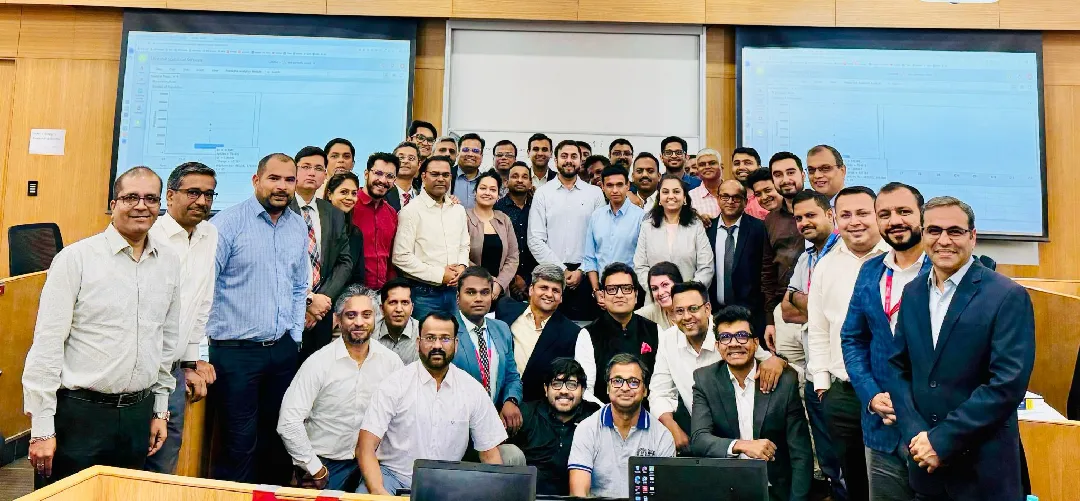
Rolling Dice & Reading Data: The Math Behind Business Decisions
by Admin | IITBOMBAY-WU
So, it all started with a book. A book with over 900 pages. Naturally, when we received it, we all wondered how on earth we were supposed to read and comprehend it all. The anxiety was real.
But then, in a miraculous turn of events, we had an introductory call with the professor, who assured us that we didn’t have to read the entire thing. Just a few select chapters.
Huge relief, right? It felt like being told the night before an exam that it’s been cancelled - oh joy!
While we had already begun to get to know each other in Episode 1, this episode allowed us to form deeper connections. We understood each other better and engaged in more meaningful discussions.
Here’s a quick recap of what we experienced over the past four days:

- We learned how probability helps us assess the likelihood of various outcomes. We rolled dice and flipped coins (not for poker or cricket tosses), but as practical exercises in probability theory.
- For some, revisiting the concept of regression was a refresher, while others found it completely new. However, our professor simplified the complexities of understanding relationships between variables with real-world examples.
- We explored how historical data can be used for forecasting future trends.
- We experimented with different models for prediction – we even tried forecasting the correct order quantity for a "Talking Teddy" toy, and estimating the maximum possible profits if we were to run the toy company.
- As part of the practical application, we worked on case studies where we applied these concepts to real-world business scenarios:
- Some forecasted their future sales (because who doesn’t love to guess about the future?)
- Others analysed the impact of marketing efforts on sales performance.
- Some even tried their hands at valuing a company, which sparked interest among many of us to explore investment opportunities.
This hands-on learning experience was guided expertly by Professor Dr. Sudeep R. Bapat, who led us through data modelling and decision-making techniques - covering topics like probability, frequency, forecasting, regression, and time series analysis.
The past four days have been about much more than just academic learning – more sort of opportunity for intellectual growth and practical application.
Beyond academics, Episode 2 also gave us a chance to unwind. We tried our luck with games like squash, cricket, and table tennis, which not only helped us relax but also strengthened our personal connections.
Source: IIT Bombay-WashU EMBA Batch 10